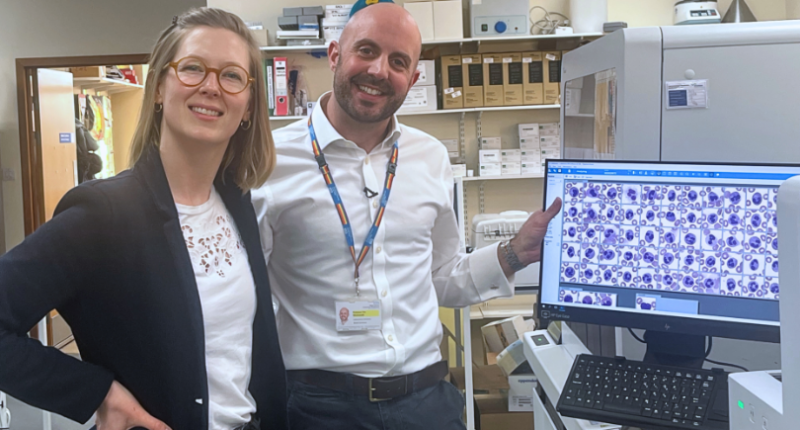Scientists at the University of Exeter have developed a new method for interpreting routine blood tests, which could help GPs identify cancer earlier.

The Royal Devon University Healthcare NHS Foundation Trust (RDUH) is the first in the UK to pilot the approach, focusing on raised platelet levels—an early warning sign for certain cancers like lung and bowel cancer.
While blood tests already include platelet counts, the new approach uses a more personalized interpretation based on factors like age, sex, and individual health history. Until now, raised platelet levels weren’t always flagged as a potential cancer risk because they weren’t considered in context with these personal factors.
The new method could change that, alerting GPs to the possibility of cancer much earlier and prompting further investigation.
The pilot phase of this project is being tested across five GP practices in Devon, where around 500,000 blood tests are processed each year.
The aim is to flag around 500 patients annually who have elevated platelet counts, with approximately 20 of those patients potentially diagnosed with cancer earlier than they would have been otherwise. Early detection like this can lead to quicker treatment and better outcomes for patients.
This research, led by Professor Sarah Bailey at the University of Exeter, was funded by philanthropist David Walton and involves analyzing data from millions of adults in Canada, England, and Australia.

By accounting for natural variations in platelet counts—such as differences based on age and gender—the study helps doctors identify when a high platelet count is more likely to indicate cancer, providing a much clearer picture of potential risks.
The results could have a huge impact across the NHS. If the pilot proves successful, experts believe this method could be rolled out nationwide, potentially identifying up to 10,000 patients each year with raised platelet counts before their cancer diagnosis.
This would allow doctors to detect cancers earlier, particularly in patients who may not show other obvious symptoms, improving treatment options and survival rates.
The NHS has a target to diagnose 75% of cancers at an earlier stage by 2028, and this new method could play a crucial role in achieving that goal.
The pilot will run for two years, and the researchers will assess both the clinical benefits and cost-effectiveness of the approach before deciding whether to expand it across the NHS.
Authors: Luke T. A. Mounce, Raff Calitri, Willie Hamilton, Meena Rafiq, Jon D. Emery, Vasily Giannakeas, Joanne Kotsopoulos, Sarah E. R. Bailey



